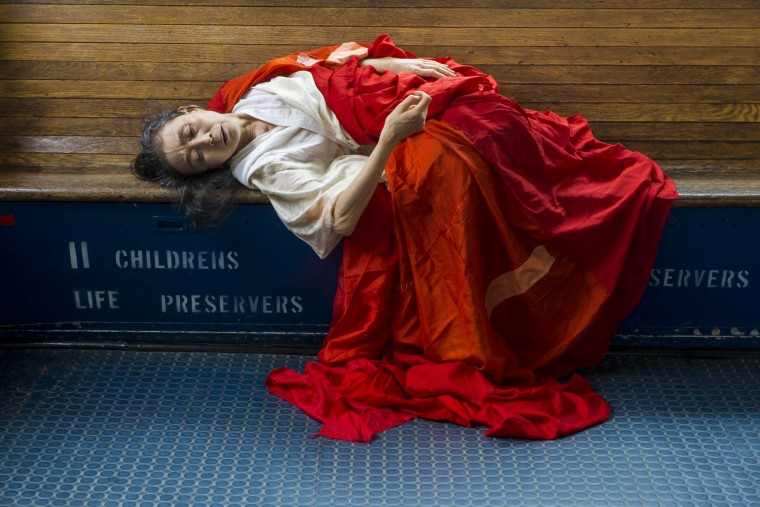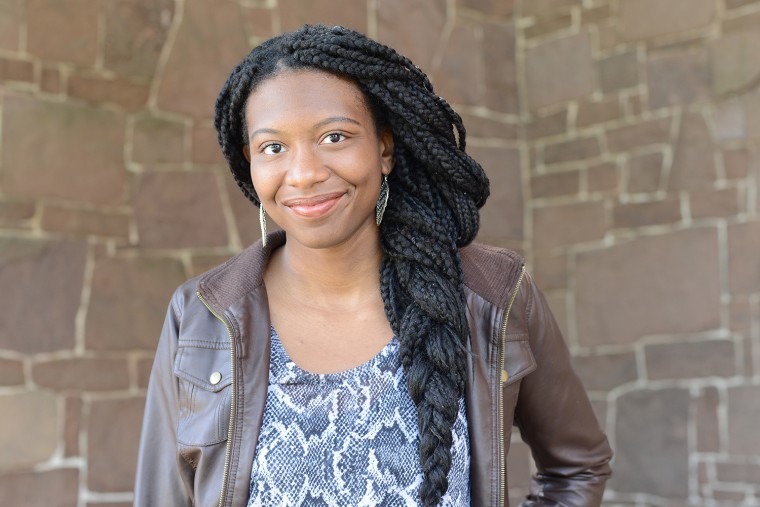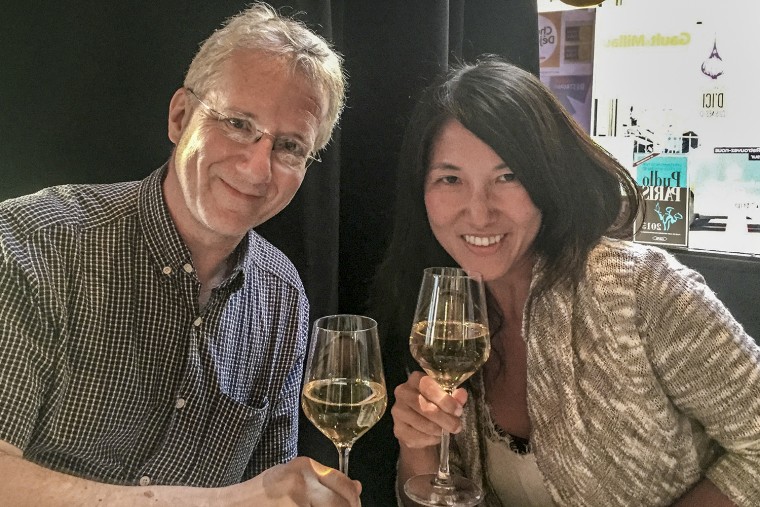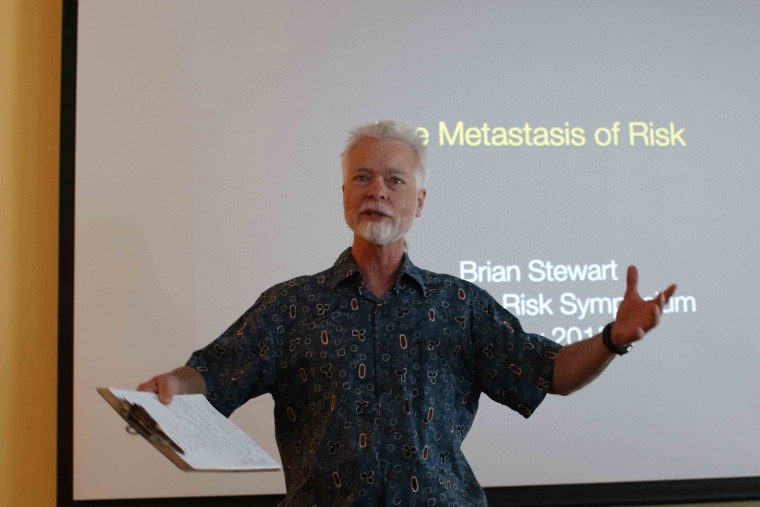Building off research she did for her work "Body in Places" at Wesleyan in fall 2015, Visiting Instructor in Dance Eiko Otake will present a major platform at Danspace Project in New York City on March 11. The free talks include those by Wesleyan faculty members William Johnson, professor of history, professor of East Asian Studies, professor of science in society, professor of environmental studies, and Katja Kolcio, associate professor of dance, associate professor of environmental studies. March 11 marks the fifth anniversary of the earthquake, tsunami and nuclear disaster in Fukushima, Japan. A photo collective by Eiko and Johnston will be…
Associate Professor of History Jennifer Tucker is the co-author of an op-ed in the Boston Globe titled, "What the Clean Air Act can teach us about reducing gun violence." Tucker and co-author Matthew Miller of Northeastern University write, "The recent scandal over Volkswagen’s polluting engines vividly illustrates the contrast between the way Americans, and in particular elected officials, treat guns and the way we (and our elected officials) treat cars — both of which kill approximately 32,000 Americans every year." The Clean Air Act, passed in 1970, has averted tens of thousands of premature deaths though "a systematic and scientific approach to…
At a time when gun deaths are spiking and Congress has failed to enact significant legislation to tackle the problem, Associate Professor of History Jennifer Tucker writes an op-ed looking at how we got here. She contends that it is Hollywood’s version of history—not reality—that is behind the belief that guns have been a critical part of American culture over centuries. She writes: The 1953 movie “Shane” exemplifies the narrative of a “good man with a gun.” Responding to a woman’s wish that guns be banished, Shane replies: “A gun is just a tool, Marian. It’s as good or bad as…
Seventy years later, it is widely believed that President Harry S. Truman made a decision to authorize the bombings of Hiroshima and Nagasaki. The truth, writes William Johnston in the Hartford Courant, is that he never did, at least not explicitly. Johnston, professor of history, professor of East Asian Studies, examines in an op-ed how history has been rewritten surrounding the bombings. In fact, Truman's first explicit decision about atomic bombs was to later order that their further use be stopped without his "express authority." But in summer 1946, Johnston explains, the need arose to write an alternative narrative, as the bomb's…
Science in Society major Stacy Uchendu '17 is participating in Wesleyan's Ronald E. McNair Post Program, which assists students from under-represented groups in preparing for, entering and progressing successfully through post graduate education. Stacy is researching second generation biofuels as a McNair Scholar.
Two Wesleyan faculty members presented talks at the 14th International Conference on the History of Science in East Asia, held in Paris, July 6-10. On July 7, Miri Nakamura, associate professor of East Asian studies, read from a paper titled "Atomic Maids," which focused on the role of Japanese housekeepers in mystery novels that were indirect criticisms of nuclear issues. On July 9, Bill Johnston, professor of history, professor of East Asian studies, professor of Science in Society, professor of environmental studies, spoke about the changing role of the environment in ideas about disease causation in 19th century Japan. The conference is held every four…
On May 2, the Wesleyan Symposium on Risk brought together faculty and students for an interdisciplinary discussion of risk. The event was sponsored by American Studies, the Center for the Humanities, the College of Letters, Feminist, Gender and Sexuality Studies, the Patricelli Center for Social Entrepreneurship, the Neuroscience and Behavior Program, the Science in Society Program, and the Huffington Foundation Professor of Economics and Environmental Studies support funds. (Photos by Hannah Norman '16) (more…)
This issue, we ask “5 Questions” of William Johnston, professor of history, professor of science in society, professor of East Asian Studies. One of his areas of specialty is the history of disease and epidemics. Q: How did you become interested in the history of diseases, and more specifically, flu outbreaks? A: While in graduate school I examined a number of different fields of history, but was drawn to the history of medicine in Japan because it was in that field that the Japanese first absorbed European scientific ideas and methods. My advisor suggested that I take courses in the…
Mention “records and documents of a large bureaucracy” and images of stacks of dense paperwork, rows of beige filing cabinets, and perhaps even a slight sensation of suffocation comes to mind. But mention the same phrase to Laura Stark and her pulse steps up a beat as she sees something quite different: buried treasure. “I am interested in the power of bureaucracies and the discretion people within them have to interpret rules,” says Stark, assistant professor of science and society, assistant professor of sociology. “How people who work in big organizations, including government agencies, apply general rules to specific cases…
Laura Grabel, the Lauren B. Dachs Professor of Science and Society, professor of biology, received a $28,750 grant from the Connecticut Stem Cell Initiative for a “Human Embryonic Stem Cell Core” outreach component. The grant is subcontracted with the University of Connecticut Health Center. Outreach activities include running a seminar program for Connecticut colleges and universities, and holding a workshop every summer at the UConn Health Center.
Gillian Goslinga has joined the Anthropology Department as an assistant professor of anthropology. She also is an assistant professor of Science in Society. A graduate of the University of California at Santa Cruz doctoral program in the History of Consciousness, Goslinga was attracted to Wesleyan for many reasons, including “the school’s progressive ethos and the ’scholar-teacher’ pedagogical model.” She says teaching is one of her passions. “The anthropology department is committed to cutting edge theory-cum-praxis,” Goslinga says. She says she appreciates the combination of theoretical innovation and creativity and serious intellectual inquiry. “That made an impression,” she explains. “People at…
Paul Erickson, assistant professor of history and assistant professor of Science in Society, has been awarded the 2009 Prize for Young Scholars from the International Union for the History and Philosophy of Science, Division of History of Science and Technology (DHST). He received the award at an August ceremony in Budapest, Hungary. The award was bestowed in recognition for Erickson's significant scholarly contribution to the History of Science in Western Civilization. The prize is awarded every four years at meetings of the Union Congress to recent PhDs in the history of science and technology for outstanding dissertation projects on topics…





